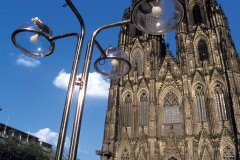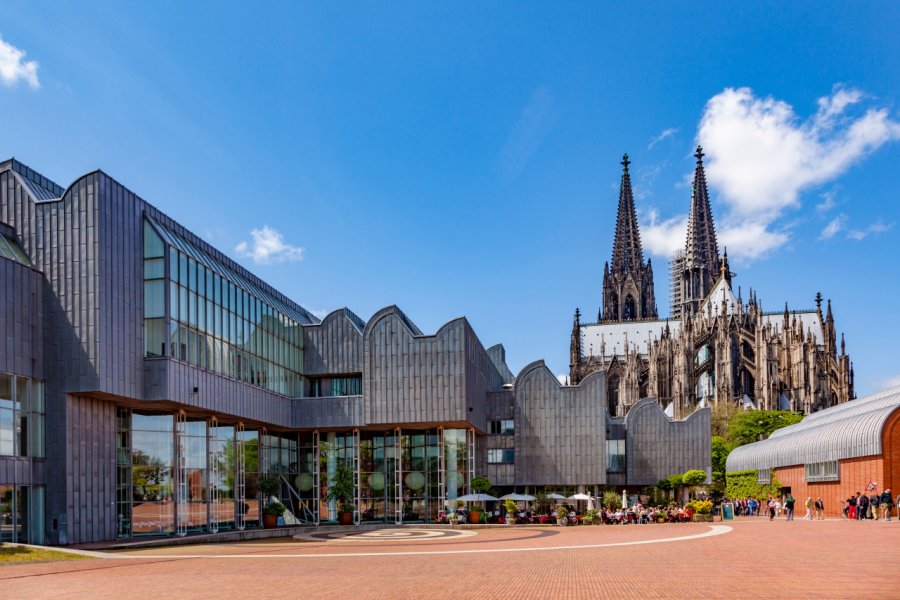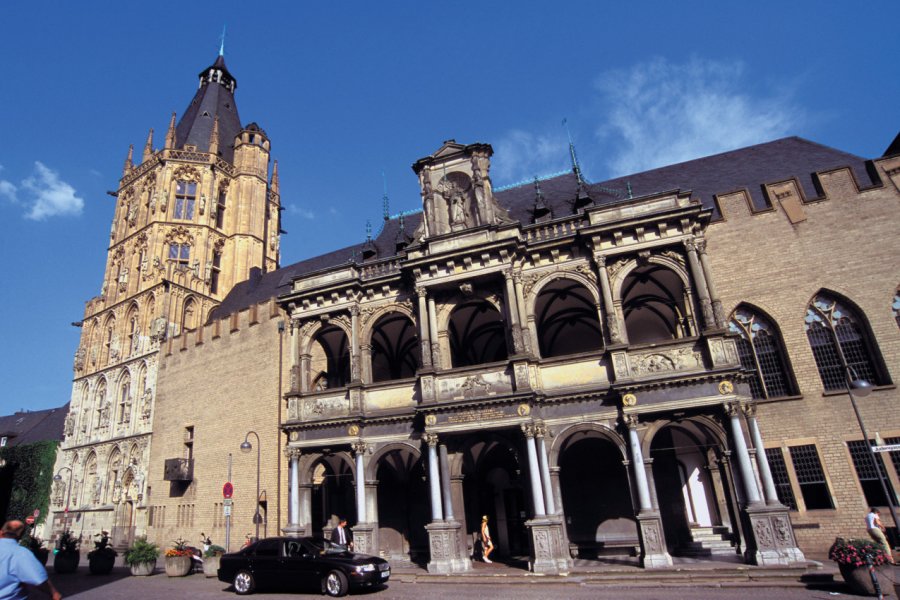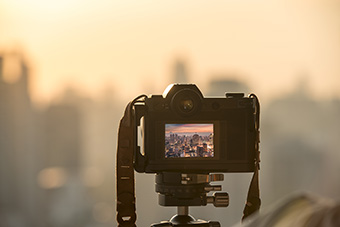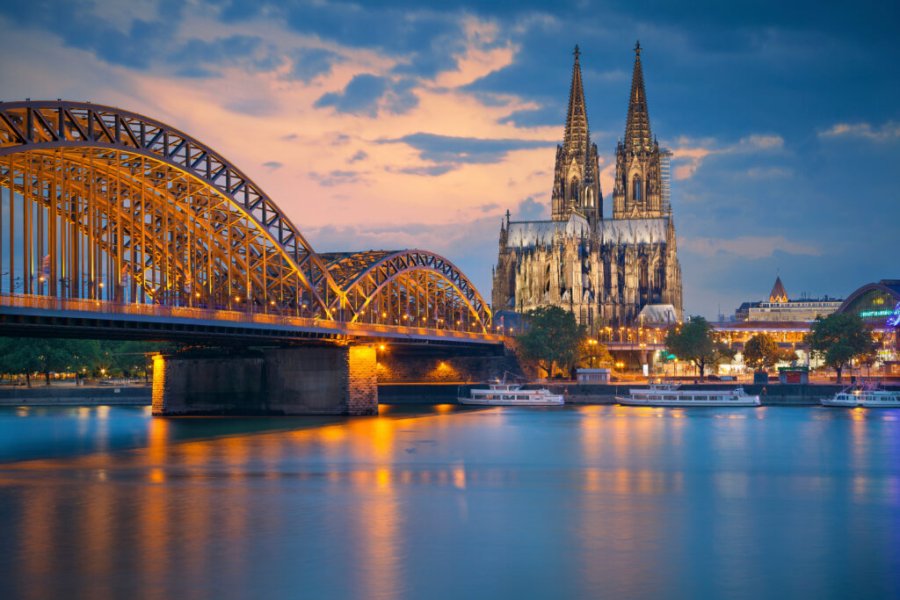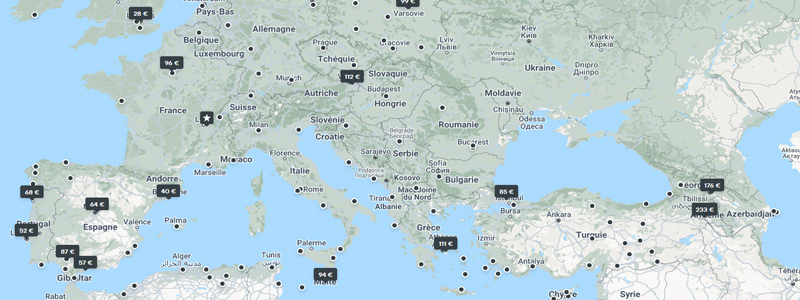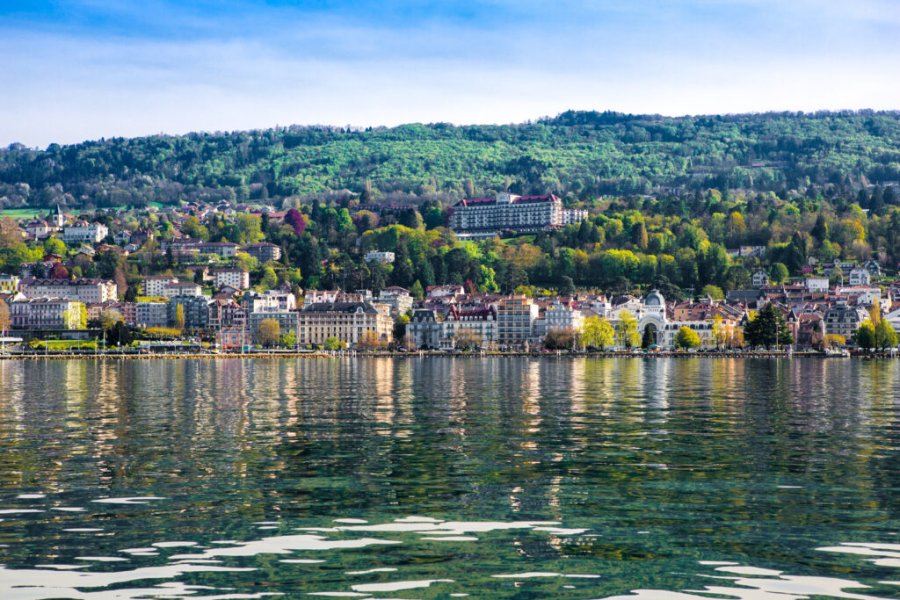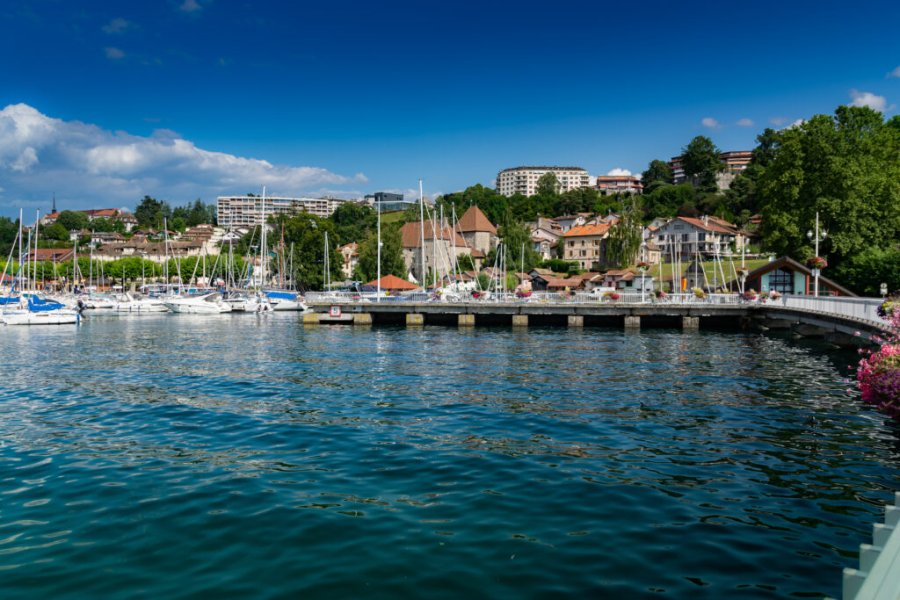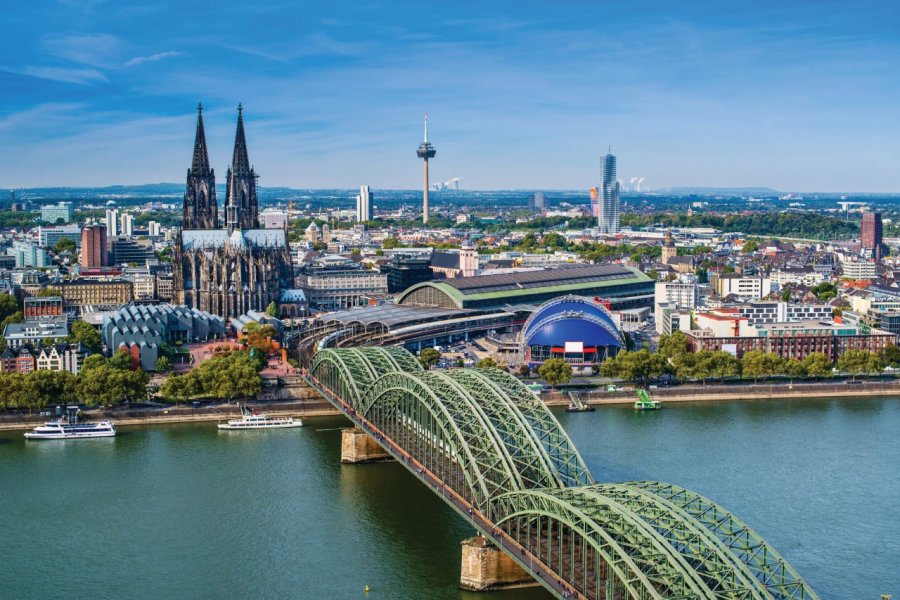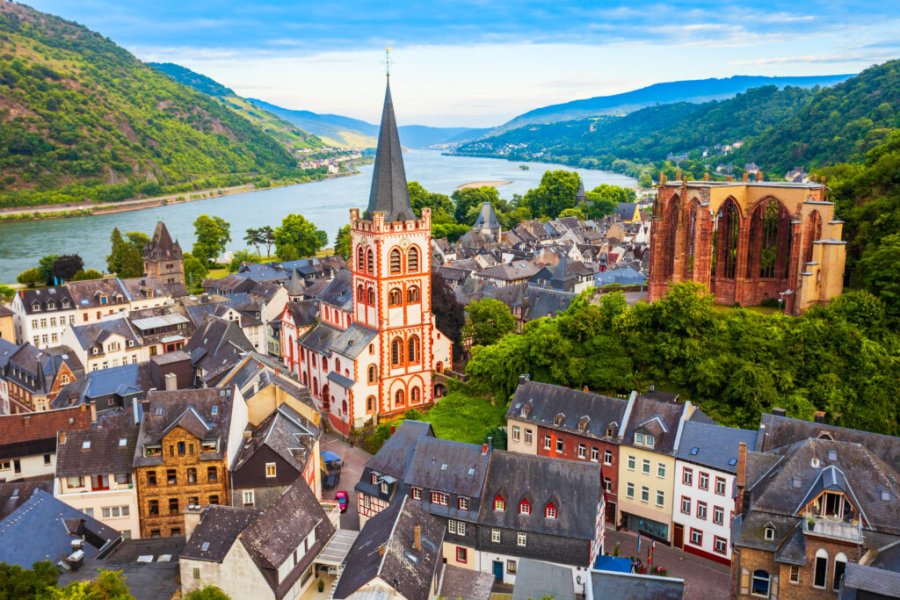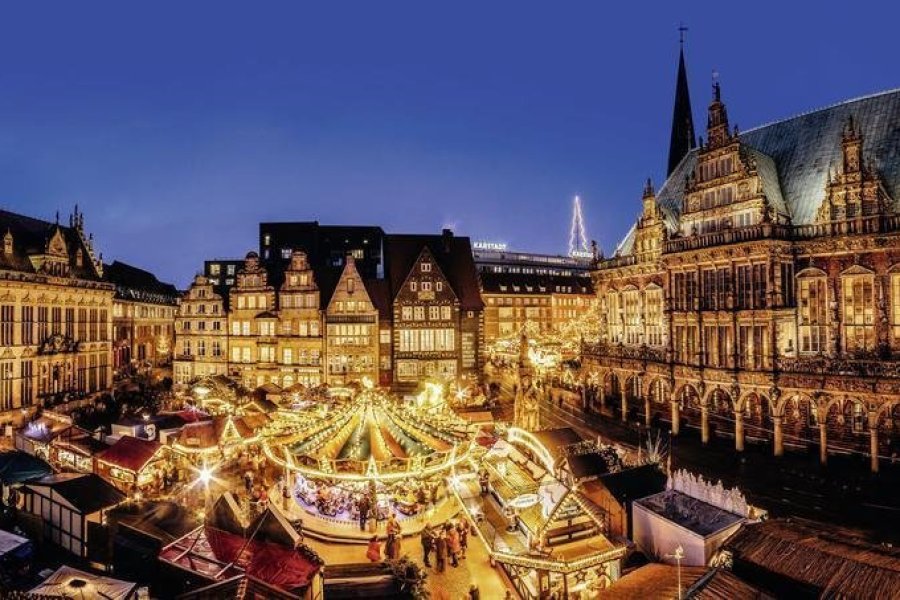Travel Guide Cologne
Located in the heart of Germany, Cologne is a bustling metropolis with a rich heritage and a lively modern outlook. Known as Köln in German, it is located in the west of the country, in the North Rhine-Westphalia region. It is the country's fourth most populous city. It is also the heart of the Rhine-Ruhr metropolitan region, one of the world's largest urban areas. Along with Bonn and Leverkusen, Cologne is one of the main cities of the Cologne-Bonn metropolitan region.
The Cologne Travel Guide highlights the city's best sights, accommodations and restaurants.
An emblematic metropolis of the Rhineland, Cologne is a shining example of Germany's rich culture and history. With its ancient roots, this dynamic city has preserved its heritage down the ages. From its Roman past to its medieval era, Cologne has forged a remarkable identity, symbolized by the indomitableUnesco-listed cathedral. This Gothic masterpiece rises majestically 157 m into the sky, reflecting the city's perseverance through the ages. Although it has suffered the ravages of time, notably during the world wars, Cologne has managed to rise from its ashes, skilfully blending tradition and modernity. But that's not all! In addition to the sublime cathedral, the city is also full of treasures.
As the country's media capital , it also vibrates to the rhythm of Carnival, an unmissable celebration that testifies to the effervescence and joie de vivre of its inhabitants. The opening ceremony is a key and powerful moment in this festivity. The city, once called Colonia Agrippinahas always been a strategic crossroads between the Latin and Germanic worlds. Today, Cologne remains a landmark destination, bearing witness to a rich history that continues to inspire and fascinate.
The Altstadt, or Old Town, invites you to stroll through its winding streets, traditional brasseries and lively squares. Lovers ofcontemporary art will be delighted by the Ludwig Museum, while the Rheinauhafen, with its warehouses converted into luxury apartments and its bold architecture, bears witness to Cologne's urban renewal .
As you stroll along the Rhine, you'll discover the Tanzbrunnen, a leisure area combining concerts, theaters and green spaces. Further afield, the Belgian Quarter, with its trendy boutiques and cosy cafés, is a must for fashion and design enthusiasts.
But what really makes the heart of Cologne beat is its incomparable atmosphere, especially during the famous Carnival, when the city is transformed into a stage for wild festivities. Scents of grilled sausages, Kölsch, the local beer, andCologne water waft through the air, reminding us that this city is a veritable feast for the senses.
Cologne is a destination that, between its historical heritage and contemporary effervescence, promises a rich and unforgettable tourist experience. It's a real nugget to discover in the heart of Europe!
What to visit Cologne?
Suggested addresses Cologne
When to go to Cologne?
When should you visit Cologne to make the most of this fascinating metropolis? Here's everything there is to discover, depending on the season:
During January and February, the city is wrapped in a soft white blanket, offering a fairytale spectacle of snow-covered historic buildings. This is also the time of the famous Cologne Carnival. If you visit Cologne in February, you'll have the opportunity to immerse yourself in a unique festive atmosphere, punctuated by parades, music and colorful costumes.
Spring, between March and May, is an ideal time to discover the city. The weather is pleasant, the days are getting longer and the city is slowly waking up to the first blossoms. April in particular, with its resurgent terraces, is a charming time for a getaway.
Summer, from June to August, is the high season. Cologne lights up with a multitude of cultural events, open-air concerts and festivals. It's the most popular period for tourists, but also the most expensive.
September is often considered the most pleasant month to visit the city. Temperatures are mild and summer crowds begin to dissipate, allowing for more serene exploration.
October offers a palette of autumnal colors, while November brings with it the start of the Christmas markets, transforming the city into a veritable fairy-tale of light.
Finally, December is magical in Cologne. Christmas markets are in full swing, and the illuminated cathedral offers a breathtaking spectacle.
Whatever the season, Cologne offers a wealth of cultural attractions.
Weather at the moment
Cologne's climate is temperate oceanic with continental influences. The weather in Cologne is characterized by moderately cold winters and mild summers. Precipitation is regular throughout the year, with a slight increase in summer.
Cologne'speak touristseason is generally in summer, between June and August, when temperatures fluctuate between 20°C and 25°C.
The low season in January and February offers a charming winter atmosphere, although temperatures can sometimes drop below freezing. If you're planning a visit during Cologne's famous Carnival, plan to arrive in February or March, depending on the lunar calendar.
Always carry an umbrella and check the weather in Cologne before you go.
Visiting Cologne is possible for all budgets. The official currency is theeuro, which is stable in relation to other world currencies. Most establishments accept credit cards, although some small shops prefer cash. For thrifty travelers, Cologne offers many free or low-cost attractions, including churches and parks. In restaurants, a 5-10% tip is appreciated for good service, although not obligatory.
The city offers a range of accommodation from budget hostels to luxury hotels. For those who want to treat themselves, Cologne is full of restaurants, traditional brasseries, high-end boutiques and 5-star hotels.
Getting to Cologne requires certain formalities. As Cologne is located in Germany, a member of theSchengen area, citizens of the EU, EEA and Switzerland can enter with a simple identity card or valid passport . Travelers from outside these areas should check visa requirements for Germany. Most non-European visitors will need a Schengen visa to enter, unless they come from a country exempt from visa requirements for short stays. It is advisable to contact the nearest German embassy or consulate for up-to-date information on visas for Cologne and other entry requirements. Once you're here, make sure you always carry valid identification with you, as checks are carried out at all times.
When planning a trip to Cologne, there are certain health considerations to bear in mind:
There are no specific vaccinations required to enter the city or country. However, it's always advisable to ensure that your routine vaccinations (such as tetanus, diphtheria and whooping cough) are up to date before traveling.
The city's tap water is of the highest quality. Not only is it safe to drink, it is also regularly tested to guarantee its purity. So you can safely drink tap water without having to constantly buy bottled water.
However, as in any large city, it's advisable to be cautious with street food or establishments that don't seem to follow strict hygiene standards.
Last but not least, Cologne has excellent health care facilities, so if you need it, you'll have access to first-rate medical care.
But as always, appropriate travel insurance is strongly recommended to cover any medical expenses.
Practical information
- When to travel?
- Weather forecast
- Budget
- Formalities
- Health
- How to travel by yourself?
- How to get organized?
- Getting around
Media
How to go to Cologne? Our advice & tips
Going to Cologne on an organized tour is a rewarding experience, as this type of excursion offers a panoramic view of the city, ensuring that you don't miss any of the iconic sights, from the majestic Cologne Cathedral to the historic Altstadt district.
Most organized tours also include guided tours, where experienced guides offer an in-depth insight into the city's history and culture. For food lovers, there are culinary tours that take you on a gustatory journey through local delights, from Kölsch, the local beer, to traditional dishes such as Himmel und Äd. If you're an art and culture enthusiast, special tours are dedicated to Cologne's art scene, with visits to museums and galleries.
Going alone in Cologne is an adventure that can be both liberating and rewarding. The city, with its rich history and modern culture, is very welcoming to solo travelers. Here are a few tips to help you make the most of your solo trip:
Explore on foot: Cologne is a very pedestrian city.
Use public transport: with an efficient and affordable transport system, it's easy to get around by streetcar, bus or train.
Discover the local cuisine: don't miss the opportunity to sample a traditional dish in one of the local Brauhäuser. And of course, try Kölsch, the local beer.
Take part in community activities: from cooking classes to group excursions, there are plenty of ways to meet locals and other travelers.
Safety first: although Cologne is considered a safe city, it's always a good idea to remain vigilant, especially at night.
Enjoy the moment!
Getting around Cologne is child's play, thanks to the wide range of transport options available. Here are a few tips to help you find your way around this beautiful German metropolis:
On foot: most sites of interest, especially in the historic center, are within walking distance. A stroll along the Rhine or through the Altstadt's picturesque alleyways is an experience not to be missed.
Cycling : Cologne is a cycling-friendly city, with numerous dedicated cycle paths. Renting a bike can be a fun and environmentally-friendly way to explore the city.
Public transport: streetcars, buses and regional trains. With just one ticket, you can easily switch from one mode of transport to another, which is ideal for covering longer distances!
Boat: for a different perspective, why not take a bateau-mouche along the Rhine?
Cabs and car-sharing: for late-night journeys, cabs are available. There are also car-sharing apps.
